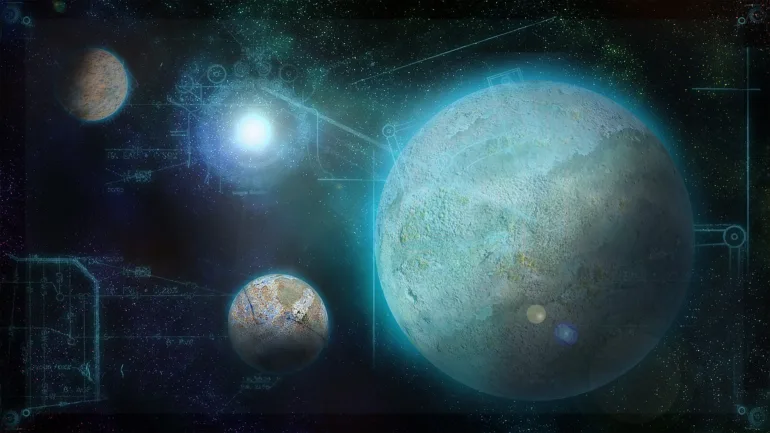TL;DR:
- A team of researchers from the University of Georgia discovered a previously unknown exoplanet using machine learning techniques.
- The study showcases the ability of AI to assist in detecting exoplanets by analyzing protoplanetary disks.
- The use of machine learning in this study represents a significant step forward in the field of astrophysics.
- The models were able to detect a signal in data that had previously gone undetected, demonstrating their ability to quickly identify important information.
- The discovery highlights the importance of utilizing AI in the field of astrophysics and its ability to make new discoveries.
- The use of machine learning has the potential to revolutionize the way scientists approach the search for exoplanets.
- This proof of concept opens up a new world of possibilities for the future of astrophysics and the search for exoplanets.
Main AI News:
A team of researchers from the University of Georgia has made a groundbreaking discovery of a previously unknown exoplanet, utilizing cutting-edge machine learning techniques. The study, published in a recent issue of the Journal of Astronomy, showcases how artificial intelligence can assist in detecting exoplanets by analyzing protoplanetary disks surrounding newly formed stars. The use of machine learning tools in this study represents a significant step forward in the field of astrophysics and the search for exoplanets.
Jason Terry, the lead author of the study and a doctoral student at UGA’s Franklin College of Arts and Sciences, explains, “Our models directed us to run simulations and showed us exactly where the planet might be.” The team’s models analyzed a set of observations and identified an unusual deviation in the velocity of gas near the planet, a characteristic sign of exoplanet presence. This discovery is a testament to the power of machine learning and its ability to enhance scientists’ work by offering an added tool to expand their accuracy and streamline their time in investigating deep space.
The ability of the models to detect signals in data that were previously overlooked demonstrates their potential to quickly identify critical information. This not only has the potential to dramatically accelerate analysis, but also to provide new theoretical insights. The utilization of AI and machine learning in this study has the potential to revolutionize the way scientists approach exoplanet searches, making the process more efficient and accurate.
According to Cassandra Hall, assistant professor of computational astrophysics, the successful use of machine learning in this study provides further evidence of its capability to make brand new discoveries in the field of astrophysics. This exciting development opens up a world of possibilities for the future of astrophysics and the search for exoplanets, as it offers scientists a powerful tool to enhance their work and unlock new discoveries in deep space.
In conclusion, the discovery of a previously unknown exoplanet using machine learning is a significant step forward in the field of astrophysics and the search for exoplanets. The use of AI in this study demonstrates its ability to enhance scientists’ work and streamline the process of investigating deep space. The potential for future discoveries using machine learning techniques is vast and holds tremendous promise for the future of astrophysics.
Conlcusion:
The discovery of a previously unknown exoplanet using machine learning has significant implications for the market. The use of AI in this study showcases its potential to revolutionize the field of astrophysics and the search for exoplanets. This opens up new opportunities for businesses in the technology and research industries, as well as for companies specializing in the development and deployment of AI and machine learning tools.
The potential for future discoveries using these techniques presents a vast market for growth and investment as the demand for more efficient and accurate tools for investigating deep space continues to increase. This discovery is a testament to the power of AI and its ability to enhance and streamline scientific research, making it an exciting and promising market for the future.

